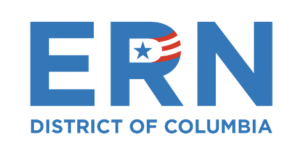
Committee of the Whole & the Committee on Education public hearing on the following Legislation:
Bill 23-515, Statewide Educational Data Warehouse Amendment Act of 2019
October 23, 2020
Ramin Taheri
Director
Education Reform Now DC
Good morning Chairman Mendelson, Chairperson Grosso, and members of the Committee of the Whole and Committee on Education. My name is Ramin Taheri. I am a Ward 6 resident, a father of two children in DCPS, and the Director of Education Reform Now DC (ERN DC). ERN DC is a non-profit organization that fights to ensure that DC’s public education system justly and equitably serves all students. We believe in a family’s right to choose where they want to send their child to public school — whether that’s in-boundary DCPS schools, out-of-boundary DCPS schools, or public charter schools. We are committed to advancing racial equity in public education, closing opportunity gaps, and regularly evaluating education reforms to see if they are working as intended. I am pleased to provide testimony on Bill 23-515, the “Statewide Educational Data Warehouse Amendment Act of 2019.” Overall, we agree with the spirit of this bill, but oppose it because it disregards teacher effectiveness and is redundant of efforts already underway by the Office of the State Superintendent of Education (OSSE) and the Research Practice Partnership (RPP).
Bill 23-515 fails to examine teacher effectiveness, which is an important factor in DC’s teacher retention and attrition rate.
We believe that teachers are professionals, and ERN DC will continue to advocate for the treatment of teachers that is commensurate with that designation, including robust compensation for teachers, supports, and incentives for teachers to serve in hard-to-staff positions and schools. A “profession,” as defined by Merriam-Webster, is “a calling requiring specialized knowledge and often long and intensive academic preparation.” Professionals, by virtue of the complexity of their vocation and the skill required to execute their duties successfully, can be distinguished from each other on the basis of their effectiveness. Indeed, we have knownfor some time that teacher effectiveness is the single most important in-school factor affecting student outcomes. DC, of course, has a proven track record in cultivating and rewarding teacher effectiveness, which has led to better student outcomes. And teacher retention in DC reflects this effort: we know that teacher attrition in DCPS is largely correlated with IMPACT ratings, with almost all DCPS teachers rated as “ineffective” and a little over half of teachers rated as “minimally effective” leaving, while only 10 percent of teachers rated as “highly effective” depart. Any discussion of teacher retention and attrition, therefore, must be had in the context of teacher effectiveness in improving student outcomes.
In addition, the bill would require data on retention and attrition to be publicly reported on the DC School Report Card, a tool designed to give families access to key data and information on school performance. While greater availability of data on teacher effectiveness is doubtless important, the inclusion of information on teacher attrition on the Report Card must be presented in the context of student outcomes. We know that when ineffective teachers leave DCPS schools, for example, they are replaced by teachers whose IMPACT scores are almost a standard deviation higher—and that student learning in those classrooms is increased by the equivalent of an additional two months of instructional time. In other words, teacher turnover itself should not automatically be considered a demerit, and any inclusion on the Report Card of data on teacher turnover should make that fact clear.
This is not to say that teacher turnover, on the whole, is a net benefit or a phenomenon we should ignore. While DC’s teacher-attrition rates “are in line with expectations given the youthful makeup of the DC labor force and job tenure trends,” it remains imperative that we better understand who is leaving, why, and whether we can do more to support teachers in their professional development.
Bill 23-515 is unnecessary and duplicative.
The bill would require the OSSE to publicly report data relevant to understanding teacher retention and attrition and provide an annual report of their findings, which is duplicative of efforts already underway.
OSSE already examines teacher retention and attrition, for example, and has been doing so for the past years through the DC Staffing Data Collaborative—“a partnership between a diverse group” of local education agencies, educator preparation programs, and OSSE, yielding “new and robust staffing data in order to perform a rigorous and secure data analysis and obtain insights that promote the recruitment and retention of excellent teachers.” The Collaborative now serves nearly 95 percent of all public school students, 50 LEAs across the District, and 7 educator preparation programs. In addition, the DC Council has also already invested in the RPP, which should provide key insights into teacher retention and attrition. The purpose of the RPP is to “provide actionable, easily consumable, independent research to the education sector, stakeholders, and the public. The research conducted by the partnership should evaluate the effectiveness of instructional practices in public and public charter schools in the District with the goal of increasing student achievement and educational equity.”
In conclusion, improved data is essential for research that can yield greater insights into teacher retention and attrition—research that can help our city continue to increase overall teacher effectiveness and, by extension, improve student outcomes. This bill does not improve those research efforts, and the inclusion of this data in its current form on the DC School Report Card would provide a one-sided view of our current teacher retention efforts. Moreover, this bill creates additional, burdensome requirements that merely duplicate efforts that are planned or already underway by OSSE and the RPP.
Thank you for allowing me to testify on Bill 23-515. I am happy to answer any questions the committees may have.
##